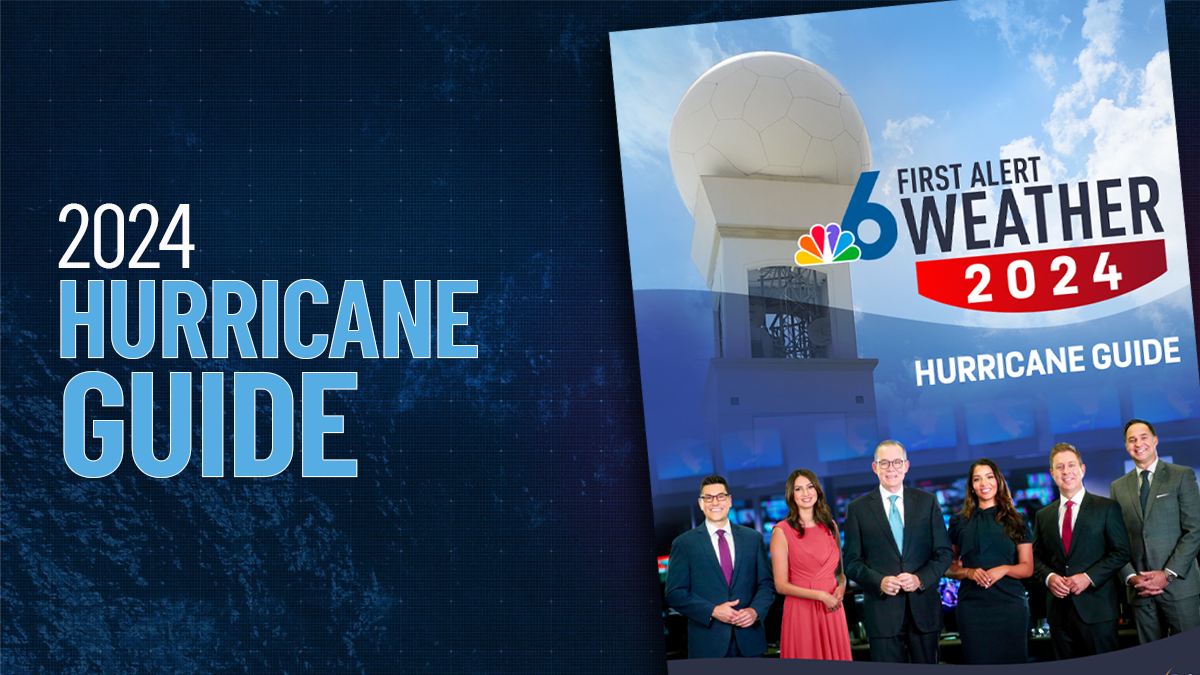Hurricane Lee rapidly strengthened to a Category 5 storm Thursday night, with wind speeds doubling in less than 36 hours.
Lee quickly became a Category 5 storm with maximum sustained winds of 165 mph as it moved west-northwest at 14 mph about 630 miles east of the Northern Leeward Islands Thursday, according to the latest update from the National Hurricane Center in Miami.
Watch NBC6 free wherever you are
>Watch live: Track Hurricane Lee as it moves across the Atlantic
Forecasters said Lee was forecast to remain a major hurricane through early next week.
Get local news you need to know to start your day with NBC 6's News Headlines newsletter.
>No watches or warnings were in effect for the hurricane, but dangerous surf and rip currents are expected to begin along most of the U.S. East Coast beginning Sunday, the NHC said.
Large ocean swells are also likely to reach the Lesser Antilles, the Virgin Islands and Puerto Rico through the weekend.

Lee is expected to remain far enough north of Puerto Rico and the Leeward Islands to prevent any direct impacts. However, rough surf and a high rip current risk will run through the islands throughout the weekend.
Hurricane Season
The NBC 6 First Alert Weather team guides you through hurricane season
Long term, Lee is expected to slow down, well north of Hispaniola, before making a turn to the north. This will keep the system several hundred miles east of Florida as it moves in the western Atlantic over the course of the following week.
Meanwhile, further out in the Atlantic, Tropical Storm Margo formed Thursday with 40 mph winds. Margot was expected to strengthen into a hurricane but the NHC track had it staying far out at sea.
Margot is the 13th named storm of the 2023 Atlantic hurricane season. The National Oceanic and Atmospheric Administration called for an "above-normal" season in its updated forecast last month, with 14-21 named storms including 6-11 that could become hurricanes and 2-5 that could become major hurricanes.



